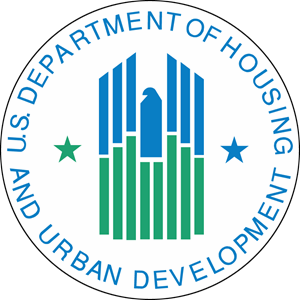Independence House offers supportive and stable housing for some families affected by domestic violence.
Domestic violence affects families in many different ways. Some families may need to transition into a new residence. Our Residential Housing Stabilization Program offers safe housing and comprehensive support for survivors. Independence House Housing Stabilization is limited to clients meeting certain criteria, and available only to clients who are not in immediate crisis.
Our Non-Residential Housing Stabilization Program provides comprehensive support to survivors of domestic violence in maintaining their housing and reduces the likelihood of a survivor becoming homeless as a result of domestic violence.
For more information please call 508-771-6507.
*Note: All potential housing stabilization clients must present to Independence House for an intake and meet with a counselor.______________________________________________________________________________________________________________________________________________________________
 Funded by HUD the Independence House Survivors Empowered residential program offers Transitional Housing and Rapid rehousing to permanent housing for survivors of domestic violence who are fleeing/attempting to flee domestic violence; staff, assist survivors of domestic violence in evaluating their housing concerns, locating, applying for, and maintaining permanent housing suited to their budget. Generous community members may also assist with donations of household items for survivors in need of these resources. Independence House provides rental assistance and assists with moving expenses as funds are available.
Funded by HUD the Independence House Survivors Empowered residential program offers Transitional Housing and Rapid rehousing to permanent housing for survivors of domestic violence who are fleeing/attempting to flee domestic violence; staff, assist survivors of domestic violence in evaluating their housing concerns, locating, applying for, and maintaining permanent housing suited to their budget. Generous community members may also assist with donations of household items for survivors in need of these resources. Independence House provides rental assistance and assists with moving expenses as funds are available.
VAWA Emergency transfers
|The Violence Against Women Act (VAWA) provides protections for victims of domestic violence, dating violence, sexual assault, or stalking. (Although the law names “women,” VAWA rights and protections apply to all victims of domestic violence, dating violence, sexual assault or stalking.) HUD is the Federal agency that oversees compliance for HUD-funded housing programs covered by VAWA.
Under VAWA, covered housing providers must allow tenants who are victims of domestic violence, dating violence, sexual assault, or stalking to request an emergency transfer from the tenant’s current unit to another unit.
Victims of domestic violence, dating violence, sexual assault, and stalking may be eligible for an emergency transfer if they have a reason to fear that if they do not receive a transfer, they will suffer violence in the very near future. In addition, a victim of sexual assault may also qualify for an emergency transfer if the sexual assault occurred on the premises of the property from which they are seeking a transfer, and that assault happened within the 90-calendar-day period before they request the transfer.
If you are a survivor of domestic violence, dating violence, sexual assault, or stalking – and it’s not safe for you to stay in your unit – and you live in housing units subsidized by the U.S. Department of Housing and Urban Development (HUD), you may be eligible:
- For an “emergency transfer”;
- For early lease termination without penalty; or
- To stay in your unit while your abuser leaves.
- If you live in a federally subsidized public housing unit through a local housing authority, contact the housing authority and ask how you can request an emergency transfer.
- If you live in a federally subsidized unit at a private housing development, contact the housing management office and ask how you can request an emergency transfer. See also form HUD-5383 below.
- HUD forms in English and other languages (scroll most of the way down the page or see below)
- HUD-5382 (Certification of Domestic Violence, Dating Violence, Sexual Assault, or Stalking and Alternate Documentation
- HUD-5383 (Emergency Transfer Request for Certain Victims Domestic Violence, Dating Violence, Sexual Assault, or Stalking)
_________________________________________________________________________________________________________________________________________________________
ADDITIONAL INFORMATION:
“I’m living on the street, I have nowhere to stay, what can I do?” The MA-503 Cape Cod and Islands Continuum of Care Coordinated Entry System provides intake and assessment to connect homeless people with available housing. Click here to learn more or download:
https://www.capecod.gov/wp-content/uploads/2024/03/Access-Points-2-6-2024-Live-Links.pdf
